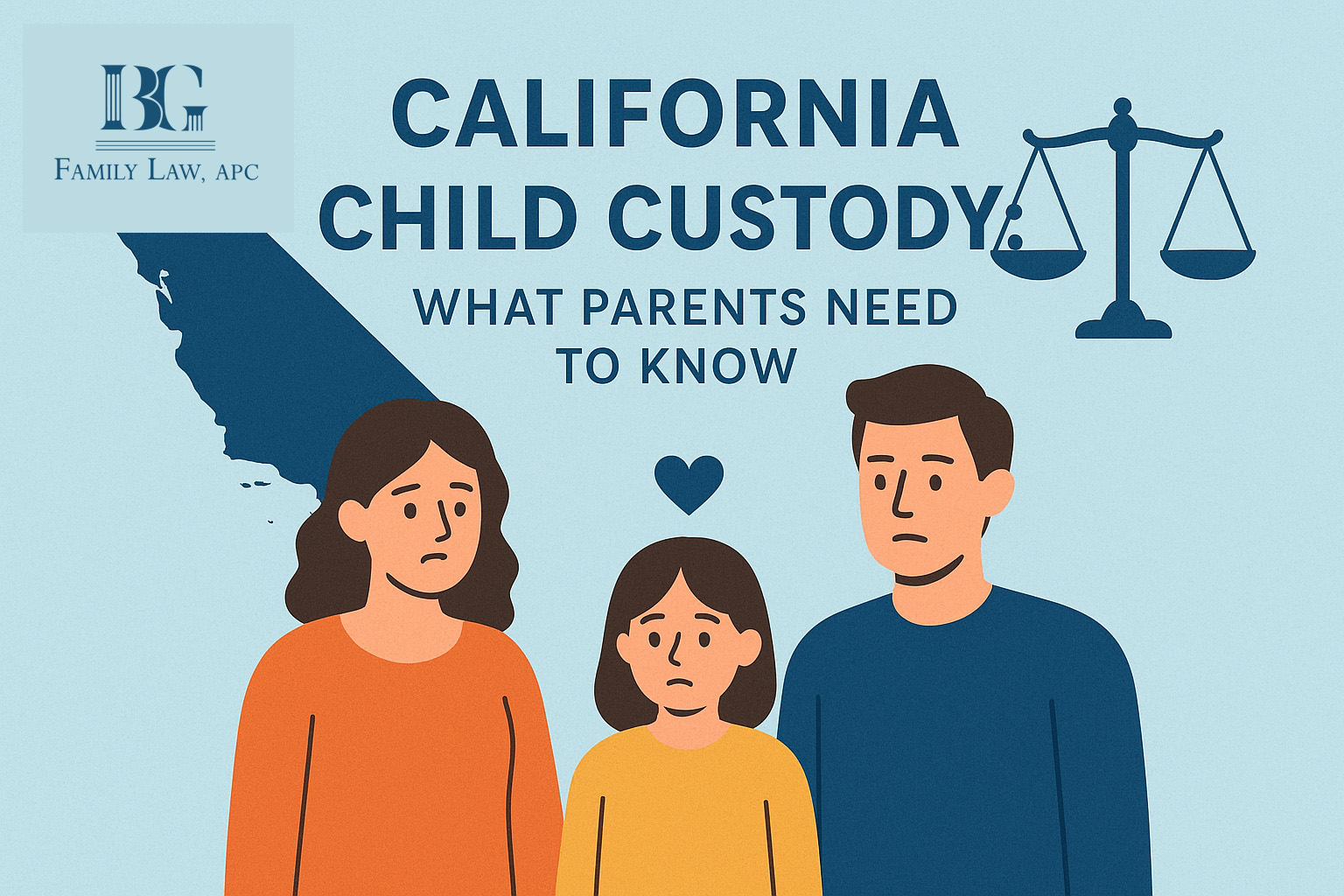California Child Custody: What Parents Need to Know

Divorce or separation is hard, but when children are involved, it can feel overwhelming. Many parents searching for a California child custody lawyer ask the same questions:
• “Will I lose custody of my kids?”
• “What if the other parent tries to take them away?”
• “How does a judge decide who gets custody in California?”
If you’re asking yourself these questions, you’re not alone. Below, we’ll break down how child custody works in California, highlight common struggles parents face, and share practical steps to protect your rights and your relationship with your children.
Types of Custody in California
California custody laws recognize two main types:
• Legal Custody: The right to make important decisions about your child’s health, welfare, education, and well-being.
• Physical Custody: Where your child lives and how parenting time is shared.
Both types of custody can be joint (shared) or sole (given to one parent). Courts usually prefer arrangements that allow children to have frequent and meaningful contact with both parents—unless there are serious safety concerns such as abuse, neglect, or substance misuse.
How Courts Decide Custody
When deciding custody, judges focus on the “best interests of the child.” Factors include:
• The child’s health, safety, and welfare
• The child’s age, school situation, and emotional needs
• Each parent’s ability to provide a stable environment
• History of domestic violence, neglect, or substance abuse
• The quality of each parent’s relationship with the child
This means the court is not looking at what feels “fair” to either parent—it’s about what best supports the child.
Common Pain Points Parents Face
1. Fear of Losing Custody
Many parents worry they’ll be cut out of their child’s life. In reality, most custody battles in California result in both parents maintaining time with their children, unless there are serious safety risks.
2. Confusing Legal Terms
Words like “primary physical custody” or “visitation schedule” can feel overwhelming. A skilled California child custody attorney can explain what these terms mean for your family.
3. Conflict Between Parents
Disagreements about schedules or parenting decisions can quickly turn into a custody battle in California. Mediation is often required before going to court, giving parents a chance to reach an agreement.
4. Changing Life Circumstances
Parents often ask: “What if my job changes or I move?” Custody orders can be modified if there’s a significant change in circumstances.
Practical Tips for Parents
• Keep Records: Document parenting time, communications, and important events in case disputes arise.
• Stay Child-Focused: Avoid speaking negatively about the other parent in front of your child. Judges notice when parents prioritize their child’s well-being.
• Consider Mediation: Many families resolve disputes through child custody mediation in California, which can save time, stress, and money.
• Seek Legal Guidance Early: Even if things are cooperative now, it’s wise to know your rights and prepare for possible changes.
Final Thoughts
Child custody cases in California can feel like the most stressful part of a divorce or separation. But the law is designed to protect children and preserve their relationships with both parents whenever possible.
If you are facing custody concerns—or want to better understand your rights—it’s important to speak with a trusted California child custody lawyer who can guide you through the process and protect your relationship with your children.
Disclaimer: This blog post is for informational purposes only and does not constitute legal advice. Reading this article does not create an attorney-client relationship. Every family law case is unique, and you should consult with a qualified California family law attorney regarding your specific situation.

